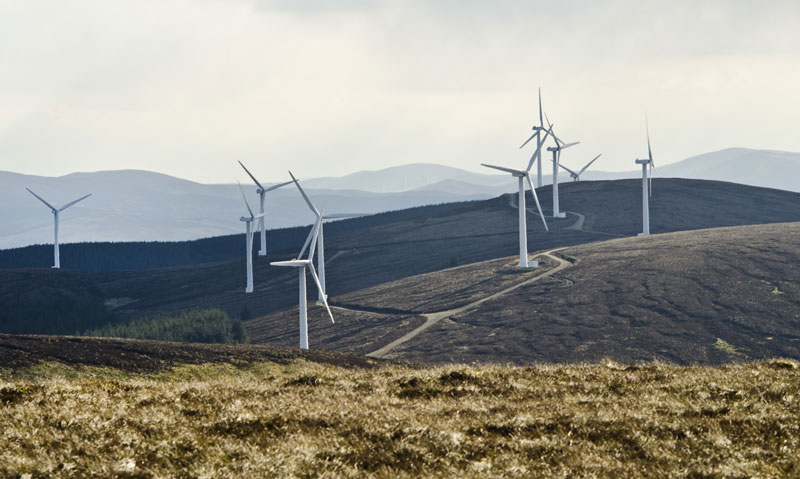Scotland Will Soon Generate 100% of Its Electricity With Renewables

Scotland is currently meeting 75% of its electricity demand with power generated from wind, solar, and hydro power, a figure which will “soon” rise to 100%.
That’s the forecast made by member organisation Scottish Renewables in a new report, produced for the launch of the Scottish Renewable Energy festival. The report highlights the many benefits renewables are delivering to Scotland—from jobs to support of rural economies to progress toward climate goals, including Scotland’s commitment to hit net zero emissions by 2045.
Nearly 25 years on from the opening of Scotland’s first commercial wind farm, at Hagshaw Hill in South Lanarkshire, Scotland has 11.3GW of renewables capacity, with a further 12.6GW of capacity either under construction, awaiting construction, or in planning.
Onshore wind and solar installations alone are now generating enough power to meet half of Scotland’s electricity requirements. Cost reductions, driven by new technology and innovation, have made onshore wind and solar PV projects the cheapest sources of electricity.
Solar panels are 70% cheaper than they were in 2010 and the cost of lithium-ion storage batteries—needed to balance energy supply and demand and increase the usability of intermittent renewable resources—has fallen 85% over the same time period.
The cost of offshore wind power has also fallen in cost, to be approximately equivalent to the cost of onshore wind and solar power and half the cost of nuclear power. With the increased deployment of offshore wind, the percentage of electricity requirements met with renewable resources will “soon” hit 100%, the report forecasts.
In fact, during the first quarter of 2019, renewables generated enough electricity to power around 88% of Scottish households for a year, Scottish Renewables said.
However, the decarbonisation of Scotland’s energy system and economy is far from complete.
Electricity accounts for only a quarter of the energy Scotland uses. Heat accounts for around half. The Scottish government has committed to seeing half of all heat generated from renewable resources by 2030, but the figure currently stands at just 5.9%.
Transports accounts for the final quarter of Scotland’s energy use. While electric vehicles and charging stations are becoming more common and Aberdeen has pioneered the use of hydrogen buses in Scotland, decarbonisation of the sector has a long way to go—and generating clean electricity to power EVs will be crucial to this transition.
The Committee on Climate Change (CCC) has calculated that Scotland must quadruple the amount of electricity it produces in order to the decarbonisation of heating and transport.
That quadrupling of generation will further boost revenues and employment in the sector, which already employs 17,000 people and generates revenue of £5.5 billion a year, Scottish Renewables has said.
Claire Mack, chief executive of Scottish Renewables, said: “This publication sets out just some of the many benefits renewable energy is bringing to Scotland, from islands which rely on wind power for their everyday energy to rural businesses which have turned to renewable heat to improve their sustainability, both economically and financially.”
“I’m hugely proud that renewable energy projects across Scotland are delivering on jobs and for communities, particularly in rural areas, while helping to displace the carbon emissions which cause climate change.”
Read on our blog

With the government poised to implement tough new measures to...

Budget broadband provider TalkTalk has been notifying customers via email...

A year-long investigation by charity Citizens Advice has revealed a...

Education Secretary Nadhim Zahawi has announced a new commitment to...
